China Overshadows Japan, Sends Quartet into Finals as Women's Wrestling Gets Underway
Thursday, March 1, 2018 - 10:31 By Ken Marantz

A Far Eastern country dominated the opening session of the women's wrestling competition at the Asian Championships and no, it wasn't Japan.
China, led by a pair of Zhous, put four wrestlers into the finals of the five weight classes at stake on the third day at Kozhomkul Sports Palace, while only two Japanese managed to make it to gold-medal matches.
LEI Chun (CHN) stormed into the 50kg final with a pair of technical falls and will face Vinesh VINESH (IND), a silver medalist a year ago in New Delhi who will aim to become the first Indian woman to win an Asian title.
The other Chinese going for gold will be RONG Ningning (59kg), New Delhi 2017 bronze medalist ZHOU Feng (68kg) and ZHOU Qian (76kg).
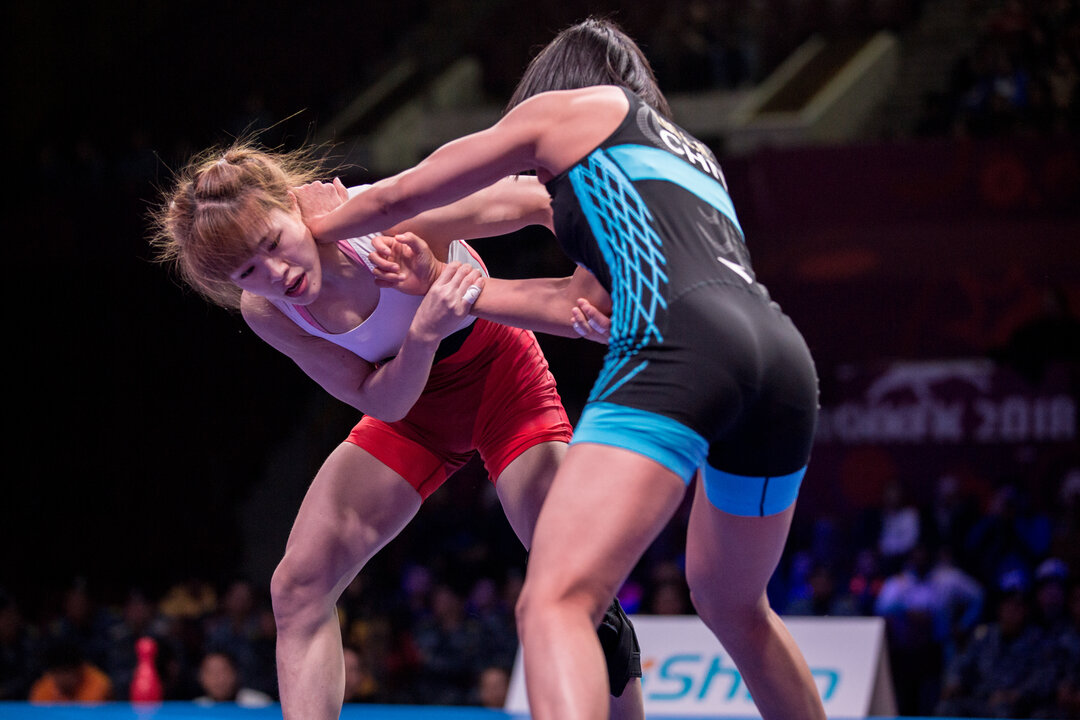 df. LUO (CHN) -by VPO1, 6 - 5.jpg) The Chinese just missed out on making it 5-for-5, but LUO Lannuan (CHN) lost a heartbreaking 6-5 decision in the 55kg quarterfinals to OH Hyemin (KOR). Oh advanced to the final, where she will face Saki IGARASHI (JPN).
The Chinese just missed out on making it 5-for-5, but LUO Lannuan (CHN) lost a heartbreaking 6-5 decision in the 55kg quarterfinals to OH Hyemin (KOR). Oh advanced to the final, where she will face Saki IGARASHI (JPN).
China's showing was not such a surprise to Siemon CHTEREV, a former two-time world medalist from Bulgaria hired six months ago to coach the women's team.
"For our team, this is a good result," Chterev said.
Chterev pointed out that the Chinese women outdid their Japanese counterparts at the Ivan Yarygin Grand Prix in January in Krasnoyarsk, Russia, where they came away with five golds, two silvers and a bronze. Among the winners were Rong and Zhou Qian.
Asked if he set a goal for medals in Bishkek, Chterev replied, "I want every time to win a gold medal."
In the finals, Rong will face Nabira ESENBAEVA (UZB), while Zhou Feng is pitted against three-time Asian medalist Tumentsetseg SHARKHUU (MGL) and Zhou Qian will take on Paris 2017 world bronze medalist Hiroe MINAGAWA SUZUKI (JPN).
India's Vinesh provided the surprise of the session when she scraped out a 4x-4 win over former Asian champion Yuki IRIE (JPN). That gave her a measure of revenge for a loss in the New Delhi final to Japan's Yui SUSAKI, who went on to win the world gold in Paris.
Irie, an Asian champion in 2015, had pulled a surprise of her own by beating Susaki at the Japan national championships in December.
Irie and Minagawa are the only national champions on the team to Bishkek, as the Japan federation put priority on the Women's World Cup that the nation will host in mid-March and sent obstensibly a young, second-string team.
Against Vinesh, Irie was the dominant wrestler but fell victim to her own impatience and a fatal error. While trying to finish off a takedown, she attempted for force Vinesh over, but the Indian clamped down on her arm and threw her for a 4-point move.
Irie completed two takedowns in the second period to tie the score at 4-4, but Vinesh thwarted her attempts for a third and held on for a win by criteria.
"The Indian wrestler is strong, but she didn't do anything," Japan women's coach Hideo Sasayama said. "There are not many competitors who do those throws like that. It happened to her this time. This gives her something to reflect on and will be good for her in the end."
While Japan was never likely to approach its showing from New Delhi, where it won five of eight golds with a team that included world and Olympic champions, Sasayama said gaining international experience was also an objective.
"We have young wrestlers and they didn't perform so well, but it becomes a good learning experience," he said. "It gives them something to work on for the next time. For the wrestlers who can still get a medal [tonight], we hope they can finish up with a win."
Women's Wrestling
50kg (12 entries)
Gold - LEI Chun (CHN) v Vinesh VINESH (IND)
Bronze – Aktenge KEUNIMJAEVA (UZB) v Narangerel ERDENESUKH (MGL)
Bronze – KIM Hyungjoo v Yuki IRIE (JPN)
Semifinal – LEI Chun (CHN) df. Narangerel ERDENESUKH (MGL) by TF, 11-0, 0:34
Semifinal – Vinesh VINESH (IND) df. Yuki IRIE (JPN), 4x-4
55kg (9 entries)
Gold - Saki IGARASHI (JPN) v OH Hyemin (KOR)
Bronze – Nazgul NURAKHAN (KAZ) v Davaachimeg ERKHEMBAYAR (MGL)
Bronze – LUO Lannuan (CHN) v Amina ALIMBETOVA (UZB)
Semifinal – Saki IGARASHI (JPN) df. Nazgul NURAKHAN (KAZ), 3-0
Semifinal – OH Hyemin (KOR) df. Amina ALIMBETOVA (UZB), 3-1
59kg (10 entries)
Gold - Nabira ESENBAEVA (UZB) v RONG Ningning (CHN)
Bronze – Sangeeta SANGEETA (IND) v UM Jieun (KOR)
Bronze – Phimsuphak AINPHEN (THA) v Shoovdor BAATARJAV (MGL)
Semifinal – Nabira ESENBAEVA (UZB) df. UM Jieun (KOR) by TF, 11-1, 3:36
Semifinal – RONG Ningning (CHN) df. Shoovdor BAATARJAV (MGL) by TF, 10-0, 1:53
68kg (9 entries)
Gold - ZHOU Feng (CHN) v Tumentsetseg SHARKHUU (MGL)
Bronze – PARK Sujin (KOR) v Irina KAZYULINA (KAZ)
Bronze – Divya KAKRAN (IND) v Meerim ZHUMANAZAROVA (KGZ)
Semifinal – ZHOU Feng (CHN) df. Irina KAZYULINA (KAZ) by TF, 10-0,
Semifinal – Tumentsetseg SHARKHUU (MGL) df. Meerim ZHUMANAZAROVA (KGZ), 2x-2
76kg (9 entries)
Gold - Hiroe MINAGAWA SUZUKI (JPN) v ZHOU Qian (CHN)
Bronze – Chantsalnyamaa AMGALANBAATAR (MGL) v Elmira SYZDYKOVA (KAZ)
Bronze – Aiperi MEDET KYZY (KGZ) v HWANG Eunju (KOR)
Semifinal – Hiroe MINAGAWA SUZUKI (JPN) df. HWANG Eunju (KOR) by TF, 10-0, 1:01
Semifinal – ZHOU Qian (CHN) df. Elmira SYZDYKOVA (KAZ), 2-1

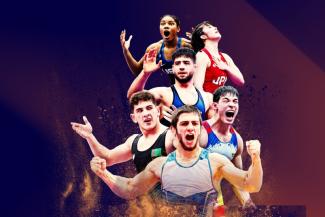
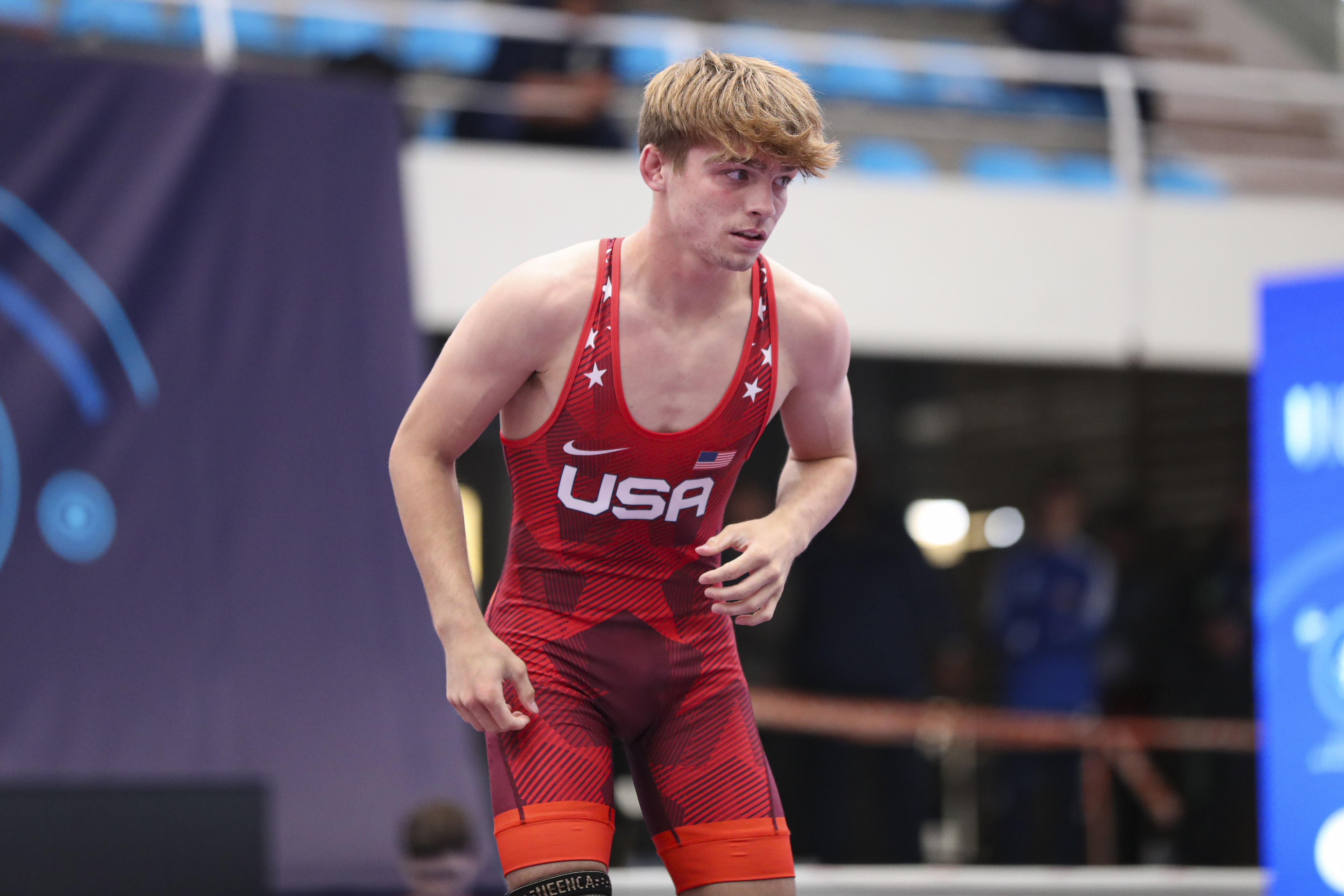 Marcus BLAZE (USA) is a returning bronze medalist at 61kg. (Photo: United World Wrestling)
Marcus BLAZE (USA) is a returning bronze medalist at 61kg. (Photo: United World Wrestling)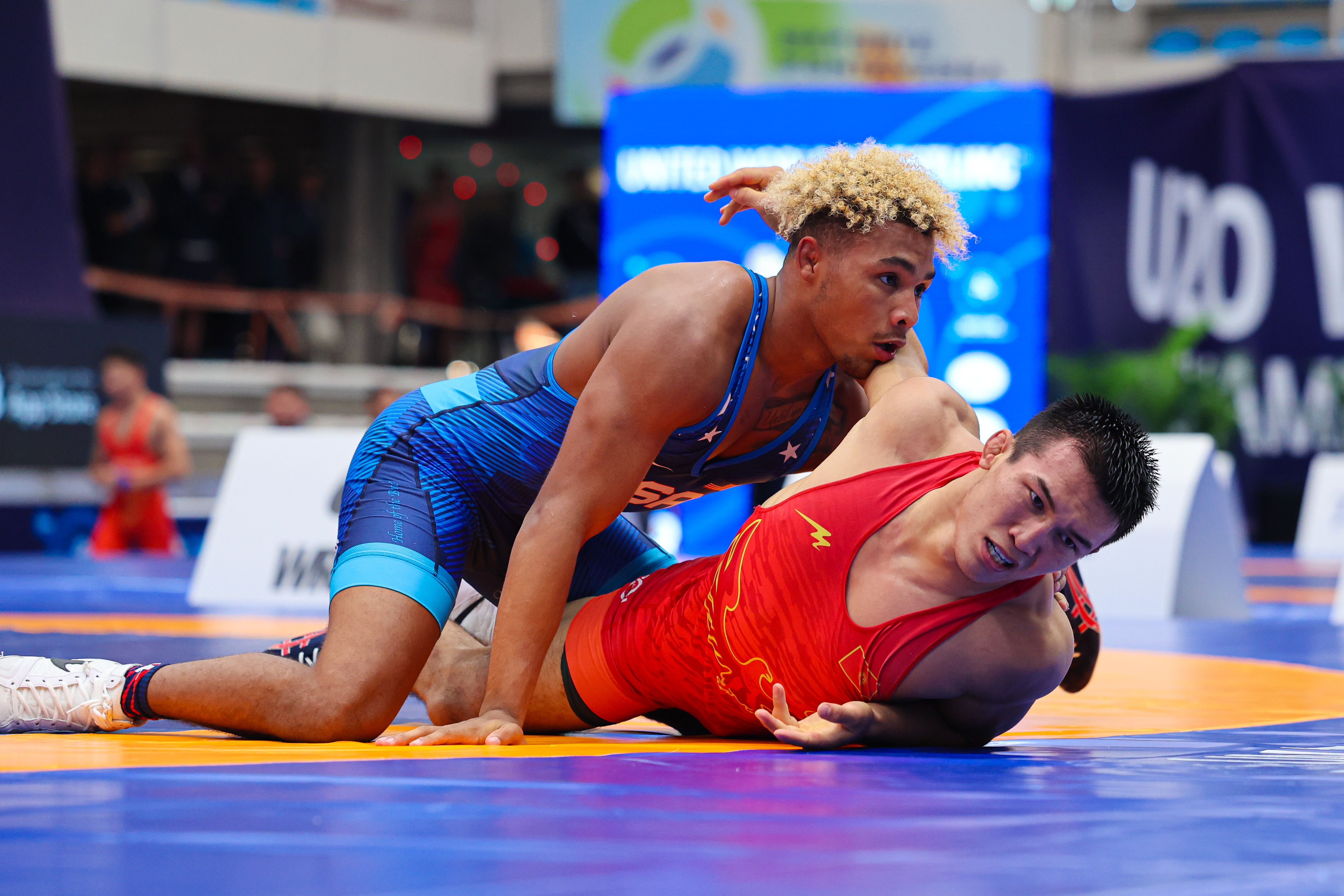 Ladrion LOCKETT (USA) will look to upgrade his silver to gold at 74kg. (Photo: United World Wrestling / Kostadin Andonov)
Ladrion LOCKETT (USA) will look to upgrade his silver to gold at 74kg. (Photo: United World Wrestling / Kostadin Andonov)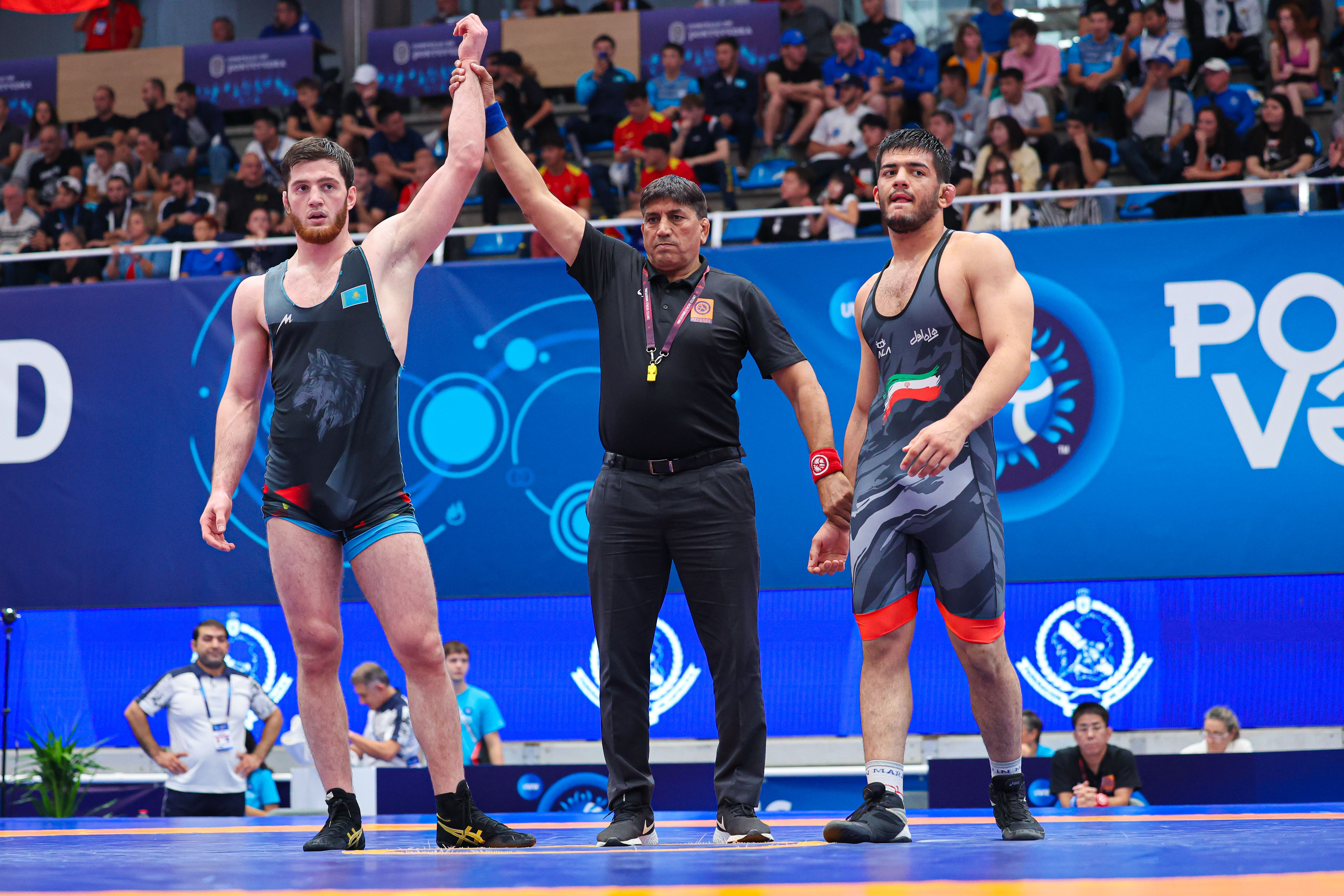 Kamil KURUGLIYEV (KAZ) is a returning bronze medalist at 92kg. (Photo: United World Wrestling / Amirreza Aliasgari)
Kamil KURUGLIYEV (KAZ) is a returning bronze medalist at 92kg. (Photo: United World Wrestling / Amirreza Aliasgari)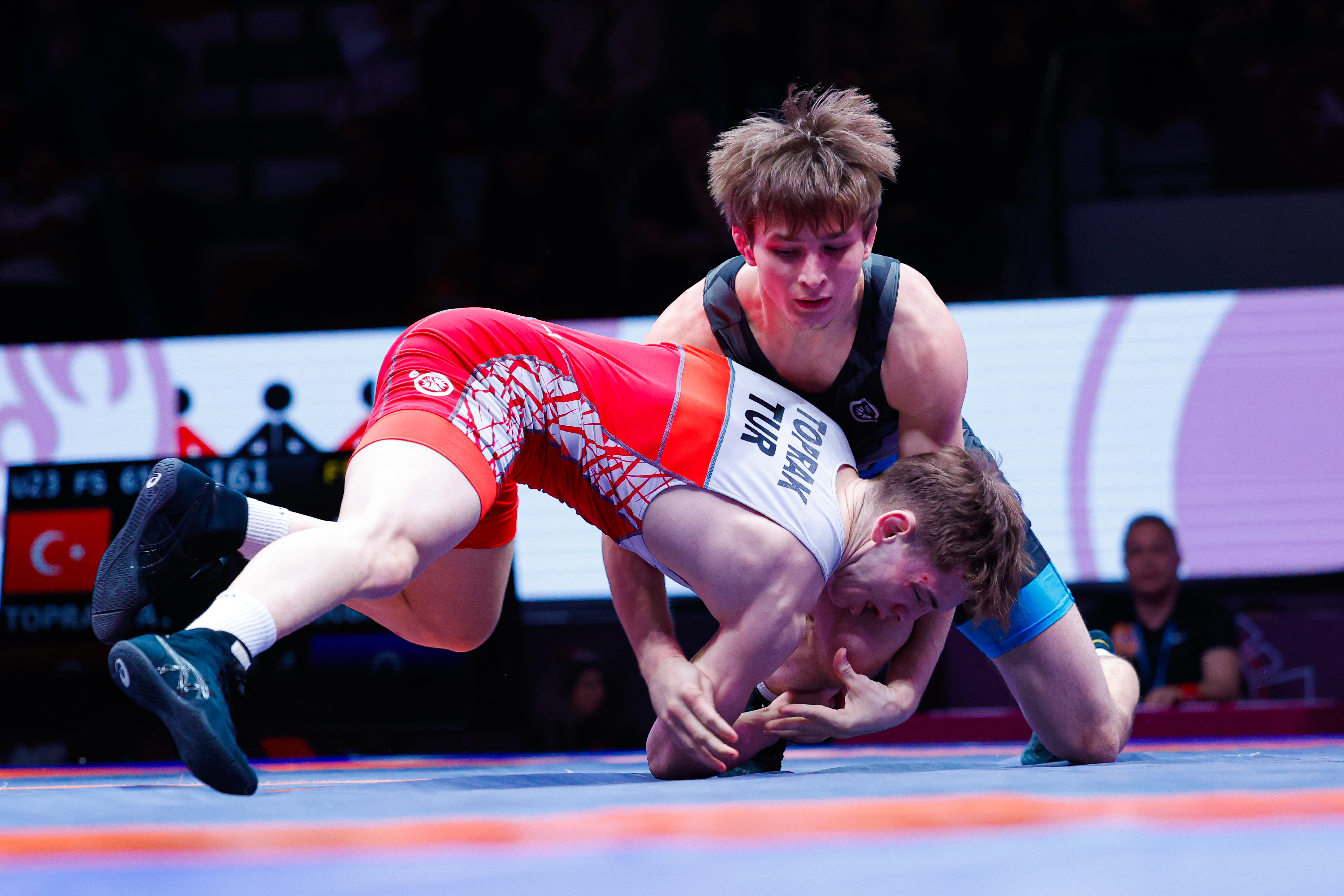 Amal DZHANDUBAEV (UWW) is the favorite to win gold at 65kg. (Photo: United World Wrestling / Kostadin Andonov)
Amal DZHANDUBAEV (UWW) is the favorite to win gold at 65kg. (Photo: United World Wrestling / Kostadin Andonov)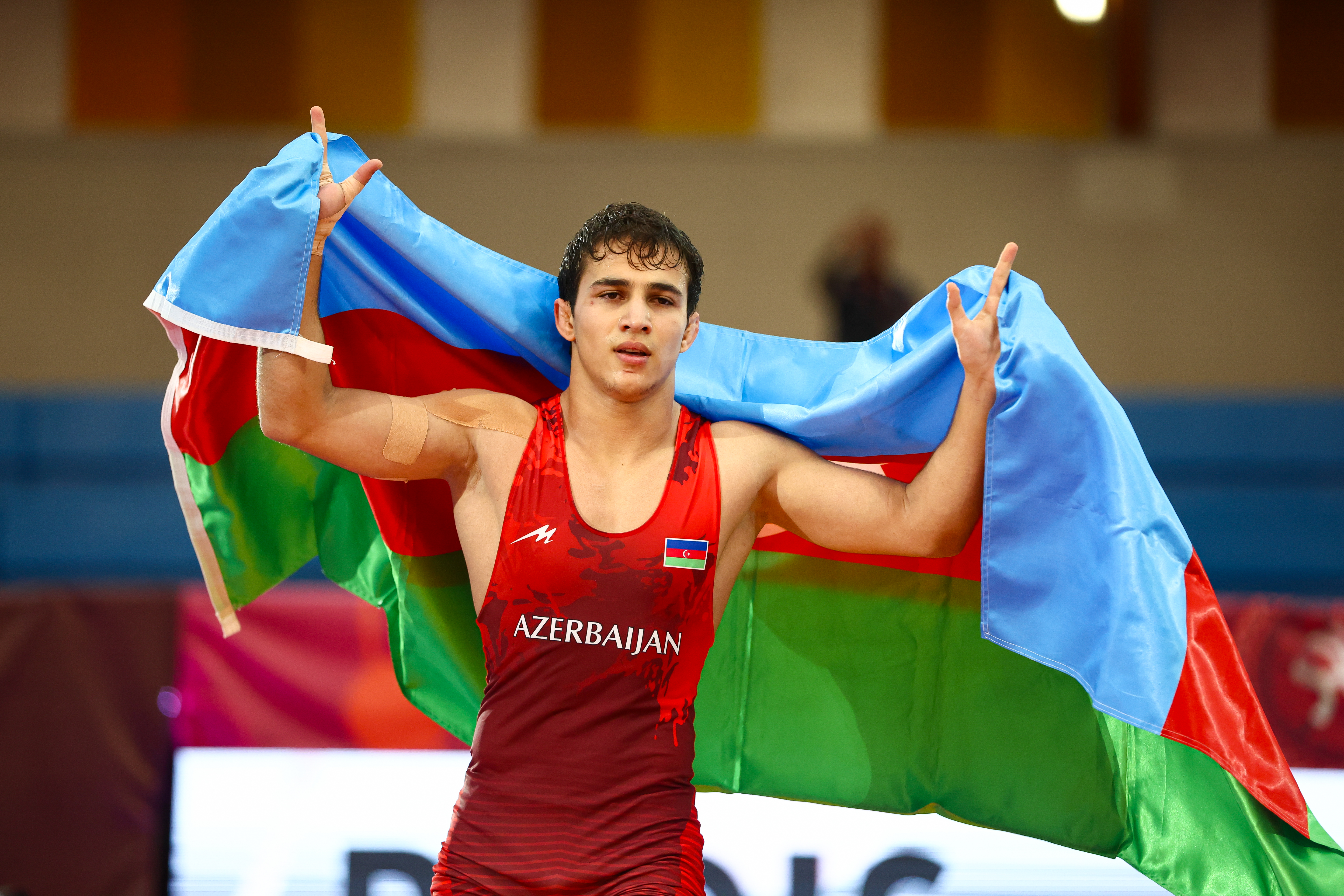 Vasif BAGHIROV (AZE) is a two-time former world U17 champion. (Photo: United World Wrestling / Jake Kirkman)
Vasif BAGHIROV (AZE) is a two-time former world U17 champion. (Photo: United World Wrestling / Jake Kirkman)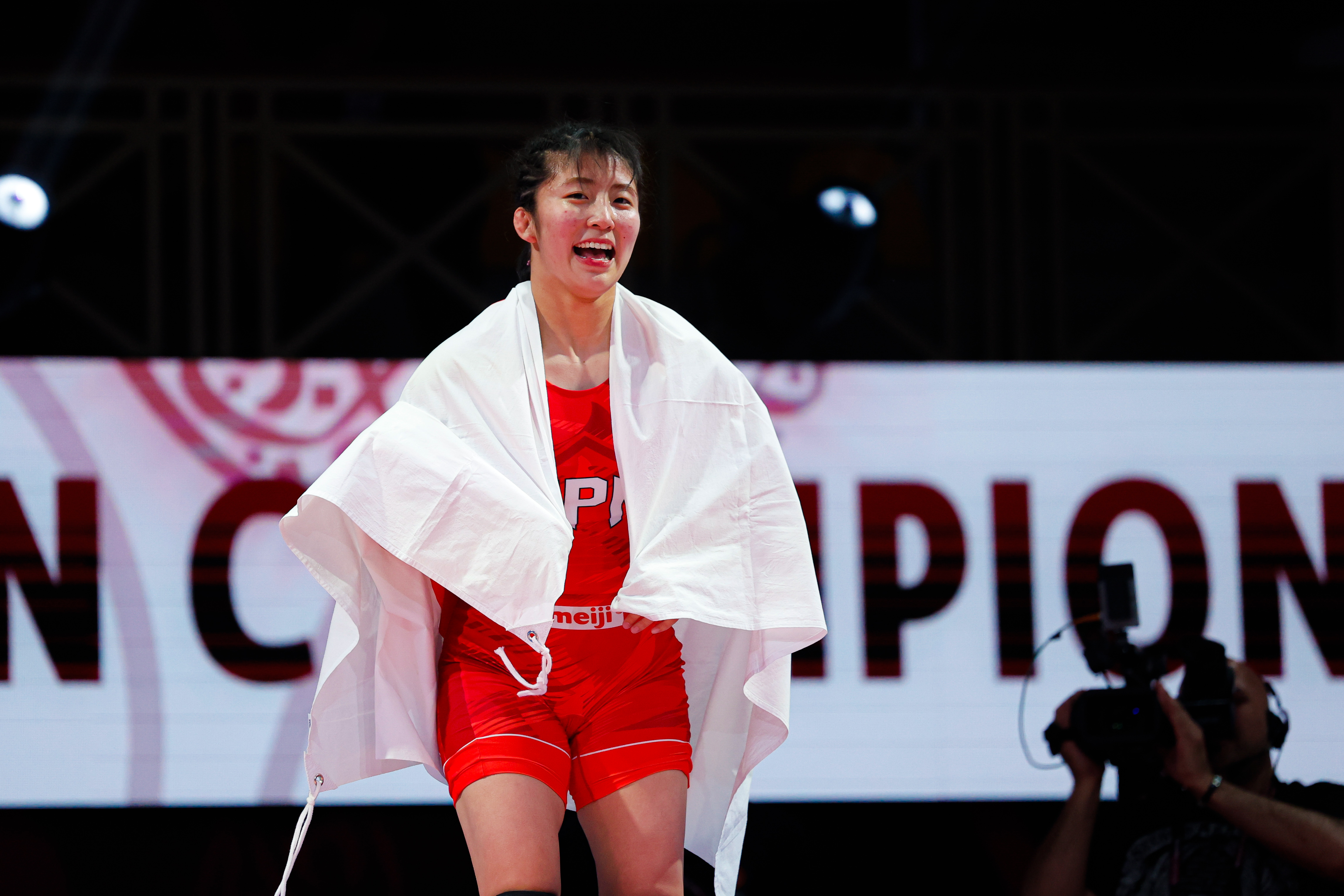 Sakura ONISHI (JPN) is a senior Asian champion at 59kg. (Photo: United World Wrestling / Kostadin Andonov)
Sakura ONISHI (JPN) is a senior Asian champion at 59kg. (Photo: United World Wrestling / Kostadin Andonov)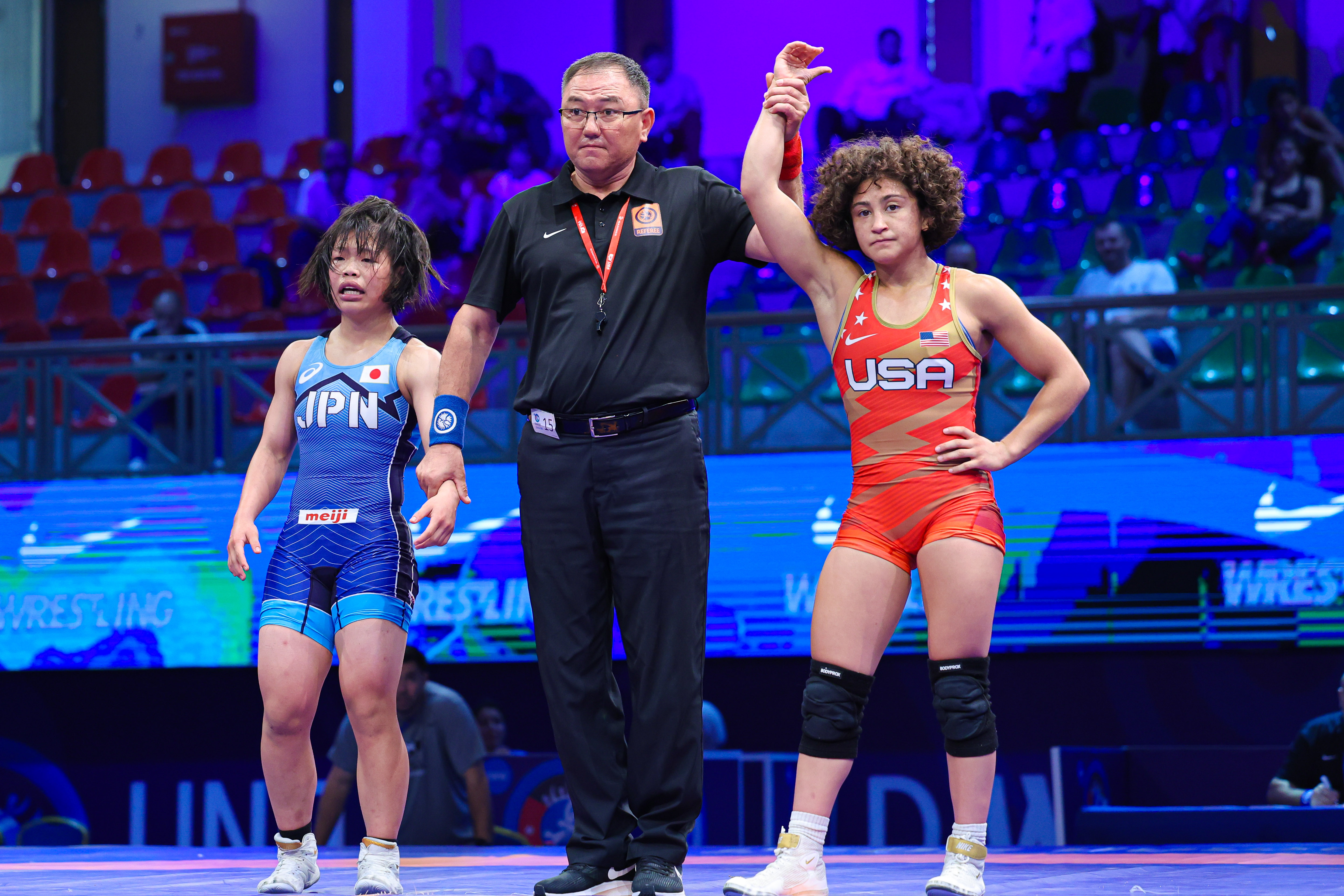 Audrey JIMENEZ (USA) is a two-time world U20 silver medalist. (Photo: United World Wrestling / Kostadin Andonov)
Audrey JIMENEZ (USA) is a two-time world U20 silver medalist. (Photo: United World Wrestling / Kostadin Andonov)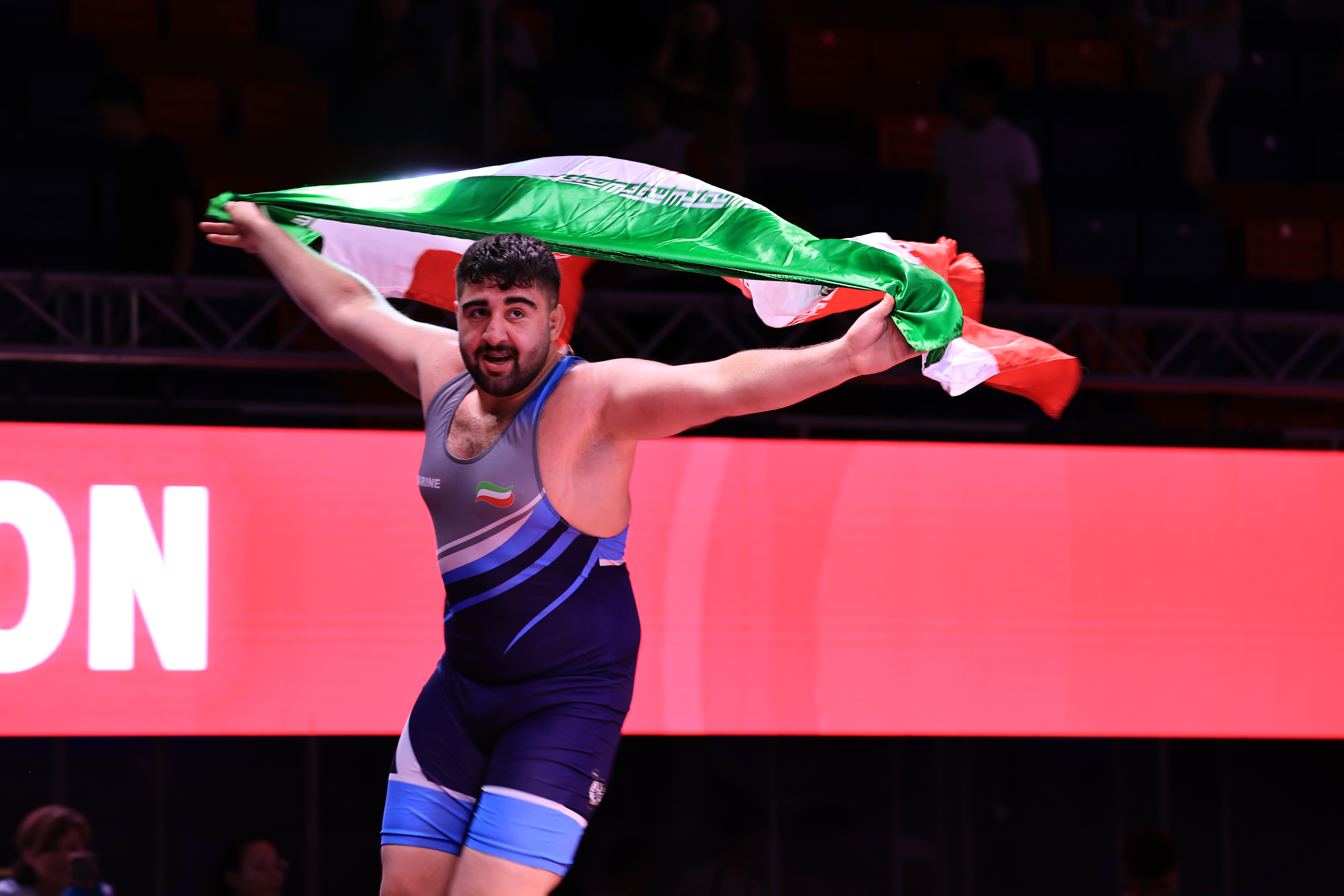 Abolfazl FATHITAZANGI (IRI) is a returning silver medalist at 130kg. (Photo: United World Wrestling)
Abolfazl FATHITAZANGI (IRI) is a returning silver medalist at 130kg. (Photo: United World Wrestling)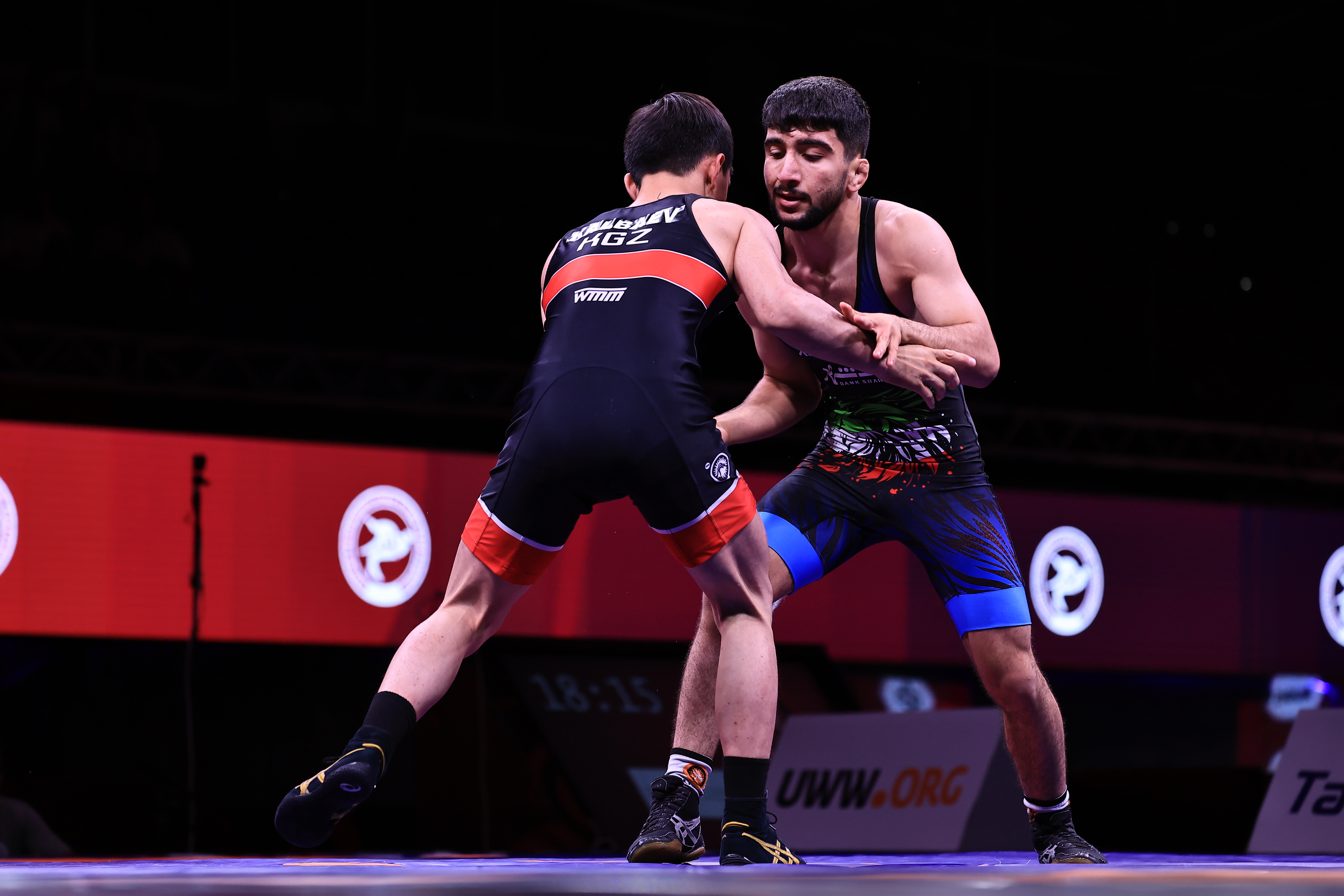 Payam AHMADI (IRI) is one of the favorites to win gold medal at 55kg. (Photo: United World Wrestling / Kadir Caliskan)
Payam AHMADI (IRI) is one of the favorites to win gold medal at 55kg. (Photo: United World Wrestling / Kadir Caliskan)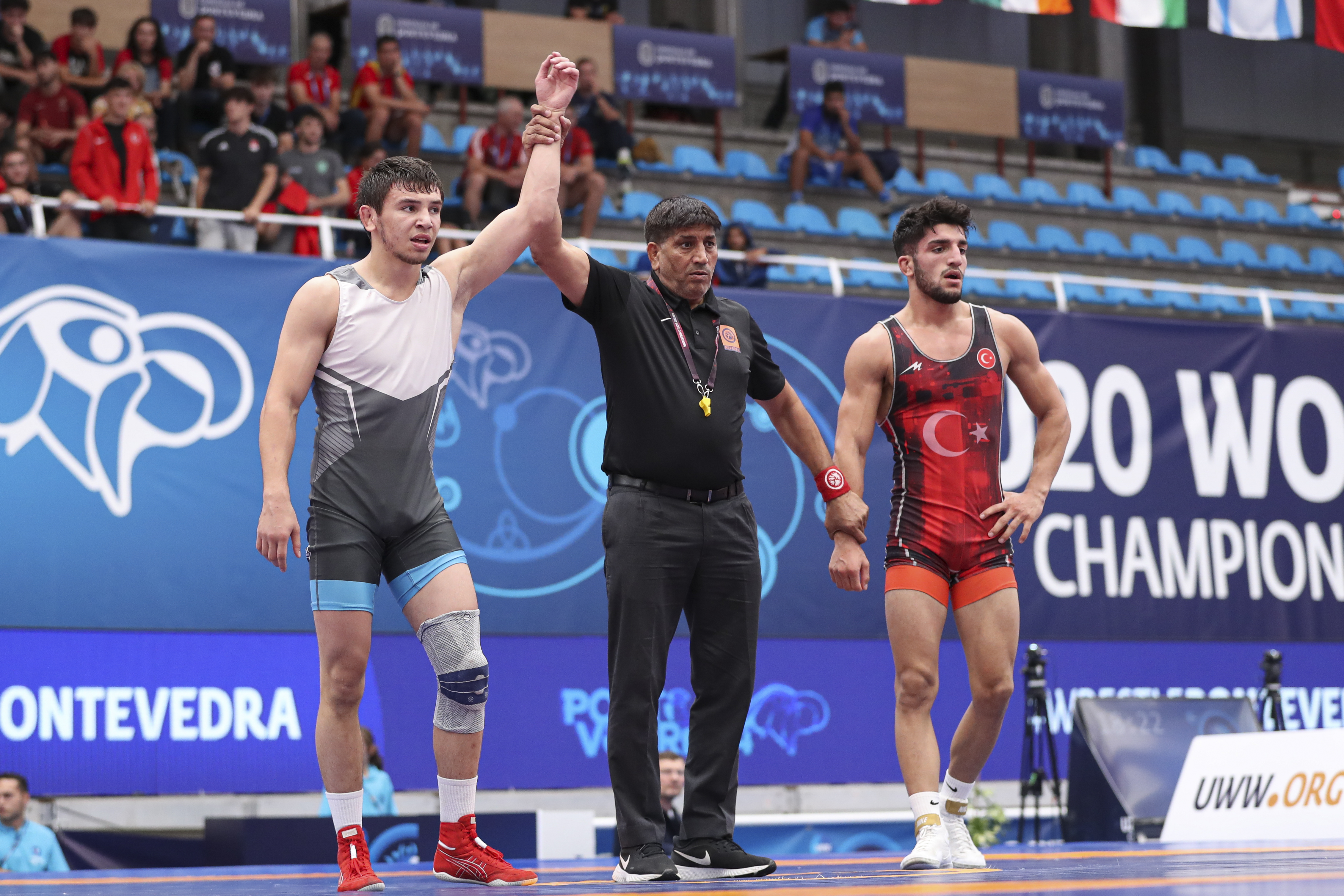 Zaur BESLEKOEV (UWW), world U20 champ at 72kg, will be wrestling at 77kg in Samokov. (Photo: United World Wrestling / Jake Kirkman)
Zaur BESLEKOEV (UWW), world U20 champ at 72kg, will be wrestling at 77kg in Samokov. (Photo: United World Wrestling / Jake Kirkman)
Share your thoughts.
Comments